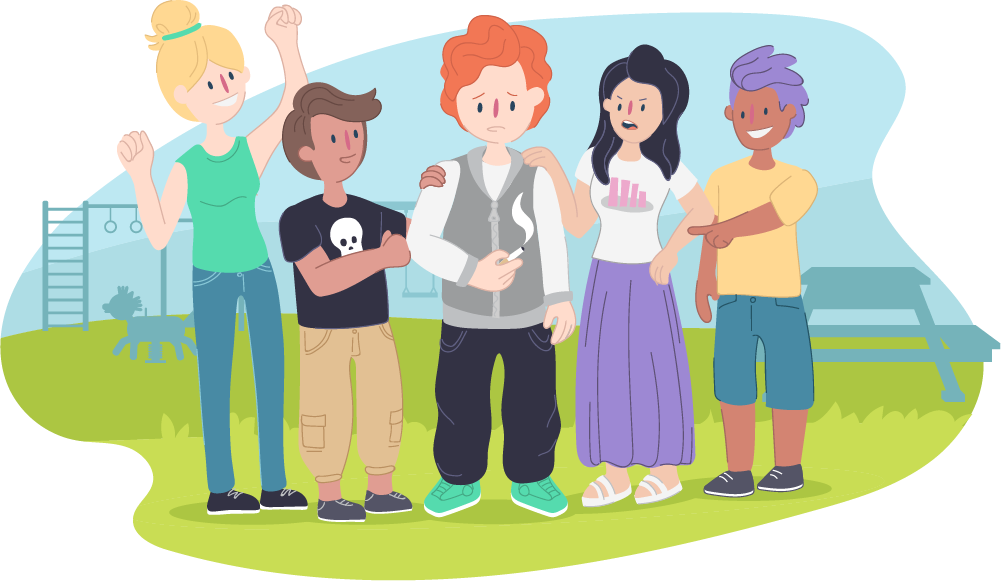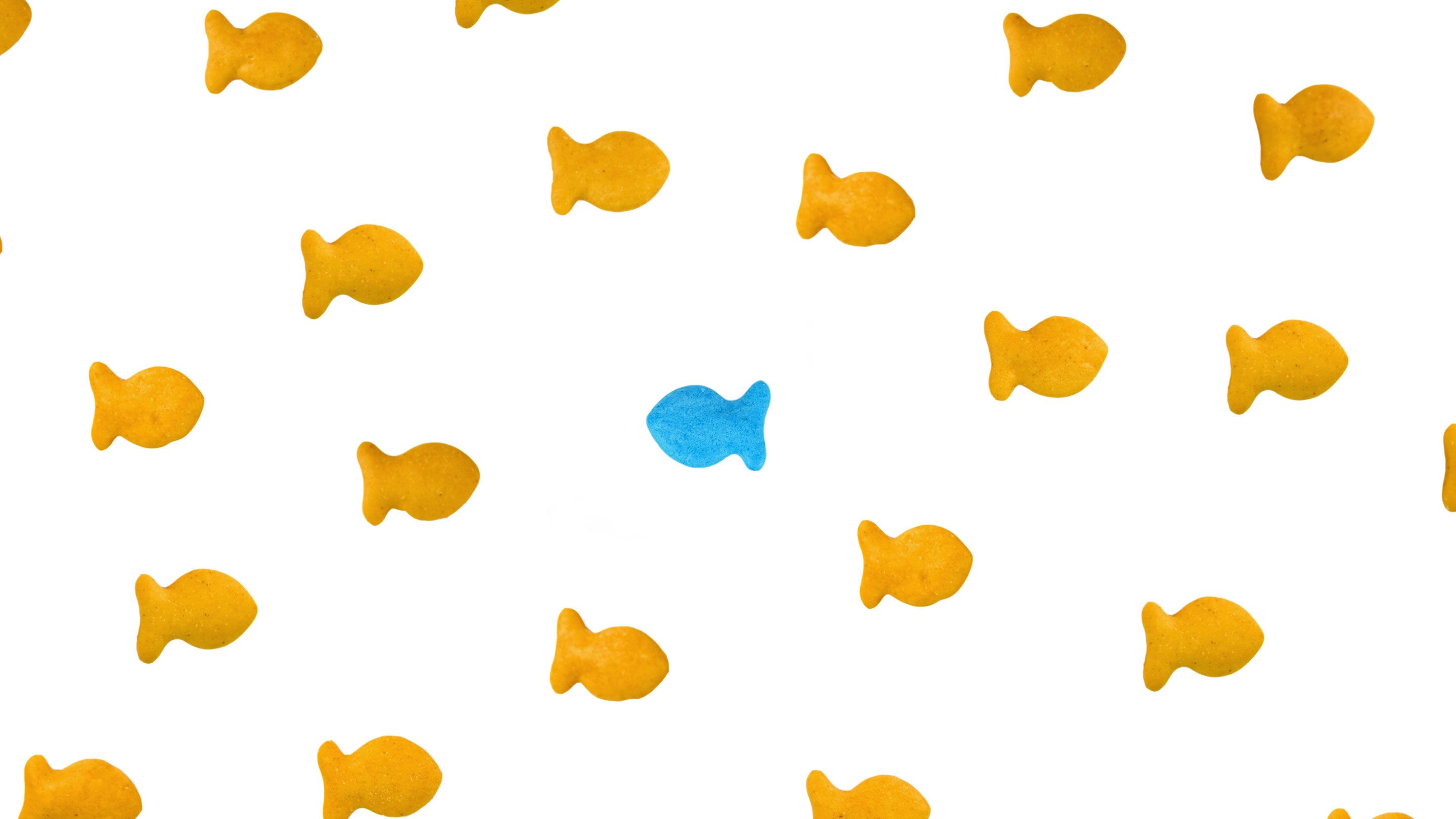
Am I too fat? Did I say something wrong? Can you see my sweat stains from gym? These questions are in every teenager’s mind every day, during each class, and during any social interaction. There has always been a distinct line between what teenagers should worry about, and what they shouldn’t need to worry about. For example, high school seniors- like me- should be worried about college applications but instead are worried about what other students think of them.
High school students already have so much on their plates, yet they still seek validation from classmates who they will probably never see again. In what world does that make sense? Do I need to look great while I try to further my education? No. Do I wish I could? Yes, of course, I do. But let’s be realistic, how many high school students show up in leggings/sweatpants and a sweatshirt every day of the week? The answer is more than half of the total student body. It has gotten to the point that if I dress up one day, my friends say “Good luck on your presentation. I know you have one because you never dress up” and I agree. But putting my story aside, research has shown that social/peer pressure can cause teenagers to become insecure and self-conscious, causing an increase in depression and anxiety.
Many parents often say that “it’s just a phase,” or “they’ll get over” or even “it’s okay, she’s just sad”–my own parents are guilty of repeatedly doing this. Sadness is not the same emotion as depression. Sadness is the emotion you feel when you fail a math quiz but depression is a mental disorder that unfortunately many teenagers are diagnosed  with. It first starts out with a loss of feeling any emotion and progresses on to extreme sadness, loss of interest, and unfortunately ends up in suicide, if gone untreated and unspoken. “The Impact of Unspoken Peer Pressure” by Northwestern Medicine states that many students experience “unspoken” peer pressure such as early or late puberty, sideways glances, and the impractical expectations they are subjected to such as the intense amount of homework, school work, and extracurriculars–anything that makes them different and often enough, these “different” students tend to act out instead of showing their actual emotions. Some of the main tendencies are trouble concentrating, withdrawal, boredom, and anxiety/depression.
with. It first starts out with a loss of feeling any emotion and progresses on to extreme sadness, loss of interest, and unfortunately ends up in suicide, if gone untreated and unspoken. “The Impact of Unspoken Peer Pressure” by Northwestern Medicine states that many students experience “unspoken” peer pressure such as early or late puberty, sideways glances, and the impractical expectations they are subjected to such as the intense amount of homework, school work, and extracurriculars–anything that makes them different and often enough, these “different” students tend to act out instead of showing their actual emotions. Some of the main tendencies are trouble concentrating, withdrawal, boredom, and anxiety/depression.
Who? Women or men? Who is more susceptible to depression through peer pressure? Most would think women, I concur. A 2013 study by JAMA Psychiatry, revealed that there are no significant differences in the rates of  women and men that have depression. More research conducted in 2019, unveiled different results: women are twice as likely to be diagnosed with depression than men. This means that women generally have more possibilities of being pressured and stressed, for instance when a woman goes through puberty, pregnancy, post-pregnancy, and menopause their body is changing and they cannot control what is happening to them. No matter the gender, a human’s natural instinct is to want to control especially if they don’t have control over themselves. There are all of these logical facts linking depression and women but according to the Centers for Disease Control and Prevention men are four times more likely to commit suicide than women and the people that say they are fine aren’t actually fine. It’s all for show.
women and men that have depression. More research conducted in 2019, unveiled different results: women are twice as likely to be diagnosed with depression than men. This means that women generally have more possibilities of being pressured and stressed, for instance when a woman goes through puberty, pregnancy, post-pregnancy, and menopause their body is changing and they cannot control what is happening to them. No matter the gender, a human’s natural instinct is to want to control especially if they don’t have control over themselves. There are all of these logical facts linking depression and women but according to the Centers for Disease Control and Prevention men are four times more likely to commit suicide than women and the people that say they are fine aren’t actually fine. It’s all for show.
Talking about suicide and depression may be a hard topic for some people and it is understandable why, but if we look at the statistics we would know that the topic is one we must discuss not only in school but at home as well. A horrifying reality is that 20% of all high school students are diagnosed with depression before they head to college. The worst part of it all is that highschool is leaving highschool students completely unprepared for the rude awakening of college. Peer pressure is a huge deal in high school but college is like a different world. Just like the transition from middle school to high school, high school to college is a huge leap. Freshmen year of college you are trying to make a point, make your name known, and make yourself independent. However, unnecessary pressure can add up and take a toll on your body, mind, and soul leaving you exhausted from trying to make friends and impress your peers.

Let’s move on to a more intimate setting. Pressure in a relationship. It was reported that 50% of teenagers in a  relationship feel pressured by either their friends or their partner, sometimes even both. It is not unheard of when a teenager, normally a male (not assuming based on facts) is pressured by friends into doing certain activities that they may not be ready for, unconsciously pressuring his significant other. This is not healthy and can cause depression with thoughts that his significant other does not love him leading to jealousy, anxiety, and mistrust in the
relationship feel pressured by either their friends or their partner, sometimes even both. It is not unheard of when a teenager, normally a male (not assuming based on facts) is pressured by friends into doing certain activities that they may not be ready for, unconsciously pressuring his significant other. This is not healthy and can cause depression with thoughts that his significant other does not love him leading to jealousy, anxiety, and mistrust in the relationship. This negatively affects the mentality and emotions of a young person. Young men are also pressured by society to “act like a man” or “stop acting like a girl”. It is ingrained in their brains from a young age that they need to be masculine and can’t express certain emotions. Any male that does not fall into this category is seen as an outcast or less of a man. The need to fit into the typical definition of masculinity becomes the breeding ground for feelings of worthlessness and anxiousness in young boys eventually causing depression and social anxiety in the future. These apparent “outcasts” who happen to be kids are viewed as wimpy and annoying. In addition, they start acting out and then pulling away from friends and family which is a sign of depression.
Well, we know that many of our peers are going through a rough time. Why don’t we say anything? Why do we stay away from the supposed “outcasts”? Why do we hesitate to make a new friend? Those are questions that I can answer- we are afraid of being shunned and deemed “uncool”. A question I will never understand and I can’t answer is why we take suicide and depression so lightly until it hits us or our family where it hurts. If you see something say something. Anything. It doesn’t need to be an inspirational quote, it can just be a hey in the hallways. I know it seems cliche but it’s true, it does help. So, am I too fat? No. Did I say something wrong? Probably. Can you see my sweat stains from gym? I don’t care. I already have my answers but do I still think about it every day? Yes, I do. Why? Because that’s my reality until I change it.





Recent Comments